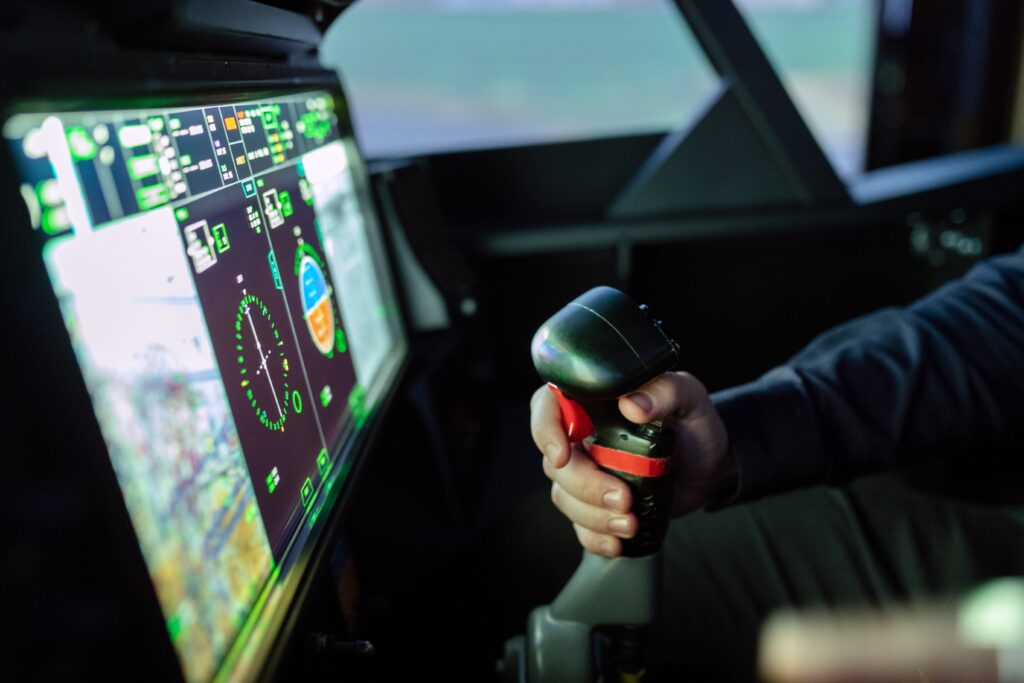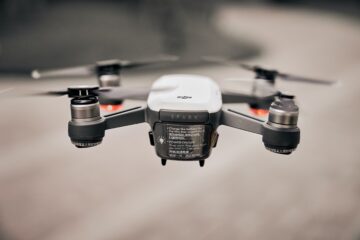Introduction to the IoT Industry and its Expansion
The Internet of Things (IoT) is a revolutionary concept that refers to the interconnectedness of various devices and systems through the internet. This allows for seamless communication and data exchange between physical objects, resulting in increased efficiency and convenience in our daily lives. The IoT industry has experienced rapid growth in recent years, with its impact extending to nearly every sector. From healthcare to logistics, the IoT has transformed the way industries operate, leading to the emergence of several exciting job roles.

Exploring the Evolution of Smart Homes
Defining smart homes and their significance
Smart homes are residences equipped with connected devices that can be controlled remotely. These devices range from light bulbs and thermostats to security cameras and kitchen appliances. The significance of smart homes lies in their ability to enhance comfort, convenience, and energy efficiency for homeowners. With the ability to automate and control various aspects of a house, smart homes provide a glimpse into the future of living spaces.
IoT integration and automation in households
The integration of IoT devices in households has revolutionized the way we interact with our homes. Gone are the days when homeowners had to manually adjust the temperature or switch off lights. With IoT integration, these tasks can be automated and controlled remotely, providing a seamless and personalized experience. Imagine being able to adjust the temperature on your way home or receiving notifications when your refrigerator runs out of groceries. IoT has truly made homes smarter and more efficient.
Job roles responsible for designing and implementing smart home technology
The design and implementation of smart home technology require a diverse range of professionals. From electrical engineers to software developers, various job roles come together to create the integrated systems that power smart homes. These professionals are responsible for developing IoT devices, designing user-friendly interfaces, and ensuring seamless integration with existing infrastructure. The demand for these job roles is on the rise as more households embrace the concept of smart living.
Revolutionizing Industries through IoT Solutions
Enhancing healthcare with IoT advancements
The healthcare industry has witnessed tremendous advancements through the integration of IoT solutions. From wearable devices that track health vitals to remote patient monitoring systems, IoT has allowed for more accurate and personalized healthcare delivery. Job roles in this sector include medical device engineers, data analysts, and healthcare IoT consultants, who work together to develop innovative solutions that improve patient outcomes and streamline healthcare processes.
Role of IoT in agriculture and improving farming practices
In the agriculture sector, IoT has played a crucial role in improving farming practices and increasing crop yields. Through the use of sensors, farmers can monitor soil moisture levels, crop health, and environmental factors in real-time. This data enables them to make informed decisions regarding irrigation, fertilization, and pest control. Job roles in this domain range from agricultural engineers to data scientists, who collaborate to develop intelligent farming solutions that optimize resource usage and increase productivity.
IoT’s impact on transportation and logistics
IoT solutions have also revolutionized transportation and logistics by improving operational efficiency, asset tracking, and fleet management. With the help of connected devices and real-time data analysis, logistics companies can optimize routes, reduce fuel consumption, and enhance overall supply chain management. Job roles involved in this sector include IoT solution architects, logistics analysts, and supply chain managers, who leverage technology to streamline processes and ensure smooth operations.
Transforming manufacturing and industrial processes through IoT
The manufacturing and industrial sectors have witnessed a transformational shift with the integration of IoT technology. IoT-enabled sensors, automation systems, and predictive maintenance tools have revolutionized production processes, leading to increased productivity and reduced downtime. Job roles in this sector include industrial engineers, automation technicians, and IoT solution developers, who collaborate to create smart factories and optimize manufacturing operations.
Securing IoT Networks: The Role of Cyber security
Understanding the vulnerabilities of IoT systems
As the IoT industry continues to expand, so does the concern for cyber security. IoT systems are vulnerable to various cyber threats, including data breaches, ransomware attacks, and unauthorized access. The interconnected nature of IoT devices makes them potential entry points for hackers to infiltrate networks and gain control over critical infrastructure. Understanding the vulnerabilities inherent in IoT systems is crucial for developing robust cyber security measures.
Job roles focused on ensuring IoT network security
Addressing the security challenges of IoT networks requires the expertise of cyber security professionals specialized in IoT. These job roles include IoT security architects, penetration testers, and cyber security analysts. Their responsibilities revolve around identifying vulnerabilities, implementing encryption protocols, and creating comprehensive security strategies to protect sensitive data and prevent cyber attacks in the IoT ecosystem.
Importance of ethical hacking and vulnerability testing in IoT
Ethical hacking and vulnerability testing play a significant role in ensuring the security of IoT networks. Ethical hackers, also known as white hat hackers, simulate cyberattacks to identify weaknesses within IoT systems. By proactively assessing vulnerabilities, ethical hackers help organizations strengthen their security infrastructure and mitigate potential risks. Their expertise is crucial in safeguarding the IoT landscape from malicious actors.
Building the Infrastructure: IoT Hardware Development
Overview of IoT hardware components
IoT hardware comprises devices and sensors that enable data collection, transmission, and actuation. These components include microcontrollers, sensors, actuators, communication modules, and power sources. Each component performs a specific function within the IoT ecosystem, facilitating seamless connectivity and data exchange.

Job roles involved in designing and manufacturing IoT devices
The design and manufacturing of IoT devices require the expertise of hardware engineers, embedded systems designers, and electronic technicians. These professionals are responsible for developing prototypes, selecting appropriate components, and ensuring the seamless integration of hardware with software systems. They collaborate with software developers and data scientists to create robust IoT devices that meet the specific requirements of various industries.
Challenges and advancements in IoT hardware development
IoT hardware development comes with its unique set of challenges. These include power efficiency, miniaturization, scalability, and compatibility with existing infrastructure. Overcoming these challenges requires continuous research and development. Advancements in IoT hardware development focus on improving energy efficiency, enhancing connectivity options, and incorporating edge computing capabilities, enabling real-time data processing at the device level.
Data Analytics and Machine Learning in IoT
Utilizing data analytics for valuable insights
Data analytics plays a pivotal role in extracting valuable insights from the vast amounts of data collected by IoT devices. By leveraging machine learning algorithms and predictive analytics, organizations can gain actionable intelligence that drives informed decision-making. Data analysts and data scientists are instrumental in uncovering patterns, identifying anomalies, and extracting actionable insights from IoT data streams.
Application of machine learning algorithms in IoT
Machine learning algorithms are essential in IoT applications for tasks such as anomaly detection, predictive maintenance, and intelligent decision-making. These algorithms enable IoT systems to learn from historical data, adapt to changing environments, and make autonomous decisions. Machine learning engineers and data scientists specialize in developing and implementing these algorithms in IoT solutions.
Job roles focused on data analysis and machine learning in IoT
Data analysts, data scientists, and machine learning engineers are in high demand in the IoT industry. Their roles encompass data exploration, model development, and algorithm deployment. These professionals possess strong statistical and programming skills, enabling them to analyze complex datasets, build predictive models, and derive meaningful insights that drive business value in IoT applications.
Exploring IoT Connectivity and Network Management
Introduction to IoT connectivity options
IoT connectivity options refer to the various protocols and technologies that enable devices to communicate with each other and the internet. These options include Wi-Fi, Bluetooth, Zigbee, LoRaWAN, Cellular, and Satellite communication. Each option has its strengths and weaknesses, making it suitable for specific IoT use cases.
Job roles responsible for managing IoT networks
The management of IoT networks requires skilled professionals specializing in network architecture, network security, and network administration. Network architects design and implement scalable and robust IoT infrastructures, while network security specialists focus on securing IoT networks from cyber threats. Network administrators handle the day-to-day operations and troubleshooting of IoT networks, ensuring efficient communication and data flow.
Ensuring efficient communication and scalability of IoT networks
Efficient communication and scalability are vital aspects of IoT networks. Ensuring seamless connectivity among a vast number of devices while maintaining low latency demands a meticulous approach to network management. Skilled professionals in IoT network management are responsible for ensuring optimal performance, enhancing data transmission efficiency, and addressing any technical issues that may arise.
Bridging the Physical and Digital Worlds: Augmented Reality (AR) and Virtual Reality (VR)
Utilizing AR and VR in IoT applications
The integration of augmented reality (AR) and virtual reality (VR) with IoT applications opens up exciting possibilities in bridging the physical and digital worlds. AR and VR technologies enable users to visualize and interact with IoT data in intuitive and immersive ways. From remote maintenance and training simulations to virtual walkthroughs and augmented remote communication, the combination of AR, VR, and IoT presents endless opportunities for innovation.
Job roles combining IoT and AR/VR technologies
The fusion of IoT, AR, and VR requires professionals with expertise in these domains. Job roles combining IoT and AR/VR technologies include AR/VR developers, user experience designers, and IoT integration specialists. These professionals collaborate to create immersive and interactive experiences that enhance productivity, communication, and overall user satisfaction in various industries.
Addressing Legal and Ethical Concerns in IoT
Privacy and security challenges in IoT
The IoT landscape poses significant privacy and security challenges due to the vast amounts of personal and sensitive data collected and transmitted through connected devices. Ensuring the protection of user privacy and securing data from unauthorized access are critical considerations in IoT implementations.
The role of legal professionals in managing IoT compliance
Legal professionals play a crucial role in managing IoT compliance by navigating the complex legal frameworks surrounding data privacy and security. They ensure organizations comply with relevant regulations, such as the General Data Protection Regulation (GDPR) or the California Consumer Privacy Act (CCPA), by drafting policies, implementing procedures, and advising on legal obligations.
Ethical considerations in designing and implementing IoT solutions
Designing and implementing IoT solutions necessitates ethical considerations. Transparency, consent, and fairness are essential aspects that need to be addressed to ensure responsible and ethical IoT practices. IoT professionals must design systems that respect user autonomy, promote fairness, and prioritize the well-being of individuals and society as a whole.
The Future of IoT: Emerging Job Roles
Predictions for the future growth of IoT
The future growth of the IoT industry looks promising, with an increasing number of devices expected to be connected in the coming years. As technology becomes more advanced and widespread, the demand for IoT solutions and job roles will continue to rise.
Exciting new job roles anticipated to emerge in the IoT industry
With the evolution of IoT, new job roles are anticipated to emerge in areas such as edge computing, blockchain for IoT, and IoT solution architecture. As these technologies mature and integrate with the IoT ecosystem, professionals specializing in these domains will be in high demand, driving further innovation and growth in the industry.
Conclusion
In conclusion, the IoT industry has witnessed remarkable growth and has become a driving force behind innovation in various sectors. From reshaping our homes to transforming industries, IoT solutions have sparked the emergence of numerous job roles. As the IoT ecosystem continues to evolve, professionals specializing in cybersecurity, hardware development, data analytics, network management, AR/VR, and legal compliance will play critical roles in shaping and securing a connected future.
FAQs (Frequently Asked Questions)
What are the most sought-after job roles in the IoT industry?
In the IoT industry, some of the most sought-after job roles include IoT security architects, data analysts, hardware engineers, network administrators, and AR/VR developers.
How can someone pursue a career in the IoT industry?
To pursue a career in the IoT industry, individuals can start by acquiring relevant skills and knowledge in fields such as computer science, electrical engineering, data analytics, or cybersecurity. Obtaining certifications, participating in IoT-related projects, and staying updated with the latest industry trends are also beneficial in building a successful IoT career.
What skills and qualifications are most desired for IoT job roles?
Desirable skills and qualifications for IoT job roles may vary depending on the specific role and industry. However, a strong foundation in areas such as programming, data analysis, networking, and problem-solving is often sought after. Additionally, industry certifications and practical experience with relevant IoT technologies and platforms can significantly enhance career prospects.
What are the salary expectations for professionals in the IoT field?
Salary expectations for professionals in the IoT field vary depending on factors such as job role, experience, location, and industry. Generally, professionals in the IoT industry can expect competitive salaries due to the specialized nature of the work and the high demand for skilled individuals.


0 Comments